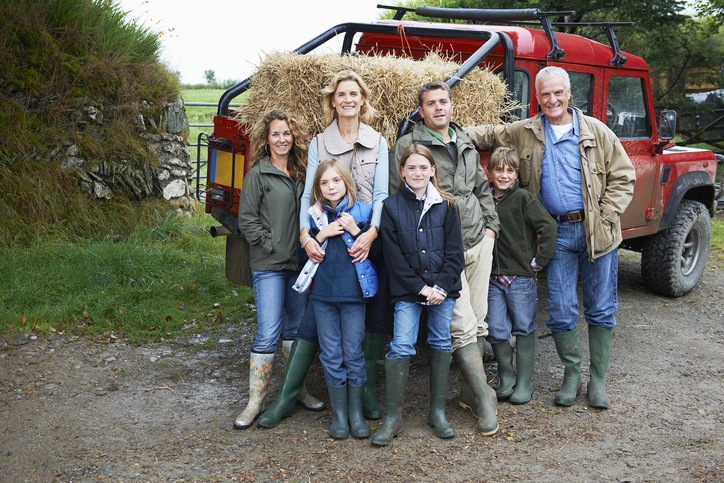Who will inherit the family farm?
Succession to the family farm, how to avoid disputes and protect the next generation’s inheritance!
Succession planning is a common problem for many farming families particularly where successive generations of the family have been farming and where there are non-farming family members, second or multiple families and land which may one day (but not necessary any time soon) be of significant value as it may be capable of development for non-agricultural purposes.
There are no easy answers as to who will inherit the farm, or how fairly or otherwise this might be achieved. Often it will be a relatively small group of individuals who are engaged in the day to day farming activities, however issues arise when considering succession and retirement. These issues are often experienced at the most extreme when a farming partner dies and the farming activity potentially comes under threat, particularly if this is the death of an individual actively involved in the farming activity. Keeping a farm operational in such circumstances is a significant challenge in itself but add to that potential claims by other family members who inherit whether by intent under the deceased’s Will, or more typically by default as a result of the Intestacy rules applying due to no forward planning. In such cases the future of the farm activity can be severely compromised and in extreme circumstances can lead to costly family disputes which often culminate in the forced sale of all or part of the farm.
In the majority of cases what most people wish to achieve is to maintain the integrity of the farm business to enable the farming partners to continue operating whilst hopefully preserving its value in order to give time to resolve any disputes, but more importantly to place control in the hands of those farming to prevent third party influences, be those family members or opportunists, from determining the future of the farm. Not least amongst the considerations in allowing the farm activity to continue are the inheritance tax considerations and the need to maximise on agricultural and business property reliefs available to mitigate any inheritance tax payable on the deceased’s interest in the farm.
Although it may not be possible to solve all the issues that face farms and farmers in determining who might inherit or succeed to the business in due course, doing nothing is likely to be the worst of all worlds bringing with it uncertainty that can otherwise be avoided.
The starting point is for the farming partners to have a properly drawn up Partnership Agreement which deals with such matters as succession planning in the event of death or retirement, to ensure that in the event of such eventualities the Partnership does not dissolve as would be the case with a partnership carried on at will with no written Partnership Agreement in place. Even the simplest of agreements can ensure the farm activity continues thus allowing control to remain with the partners and not with any external third party, whilst still preserving a deceased partner’s interest to enable this to be dealt with in due course, continuity being key.
As well as having a Partnership Agreement it is important for the partners to ensure they have a Will and this is written in a manner consistent with the terms of the Partnership Agreement to prevent unfairness to those they wish to benefit and avoiding them potentially being disinherited as a result of inconsistencies between a Will and the Partnership Agreement, the Partnership Agreement normally taking precedence over the provisions of any Will regardless of when either document is entered into or the intentions of the parties.
Given that many partnerships are farmed on land owned by the partners, or indeed often by a wider family group outside the partnership, it is important wherever possible for such land to be held on the balance sheet to maximise on any claim for inheritance tax business property relief. Where this is not possible it is equally important to have tenancies or licences in place to ensure both the ability to continue farming the land and to maximise on inheritance tax agricultural property relief. Failure to put in place proper arrangements can lead to the loss of these valuable inheritance tax reliefs, but may also lead to an unexpected inheritance tax bill which may also undermine the viability of continuing the farm operation.
As with all matters it is important that farmers faced with these considerations take the advice of all their professional advisers to ensure they protect their livelihood and that of their descendants.

